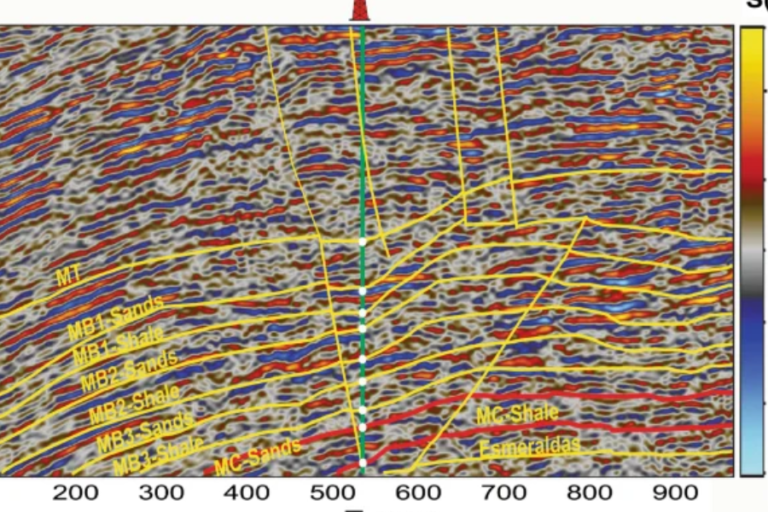adn-237: Shaping the Future of Drug Development Innovation
In the fast-evolving world of pharmaceuticals, adn-237 is emerging as a revolutionary compound poised to reshape drug development. This breakthrough innovation brings renewed optimism to both researchers and patients, promising faster, more effective pathways to new treatments. Unlike traditional drug development, which can span decades, adn-237 offers a streamlined approach that could drastically cut down on development times, creating new possibilities for modern medicine.
By integrating adn-237 into drug development, we open the door to a future where diseases are addressed more quickly, medications reach patients faster, and treatments are more personalized. adn-237 is not merely an addition to the pharmaceutical landscape; it is a transformative force that could redefine how we approach drug discovery.
Traditional Drug Development vs. adn-237’s Innovative Approach
The conventional drug development process is known for being lengthy and intricate, often requiring over a decade to bring new medications to market. Typically, this journey involves discovery, extensive preclinical testing, clinical trials, and regulatory approval stages.

In contrast, adn-237 utilizes cutting-edge technologies like artificial intelligence and machine learning to accelerate each step. By rapidly identifying viable drug candidates and using advanced in vitro models that better simulate human biology, adn-237 reduces the need for traditional animal testing. This approach speeds up development and strengthens safety assessments early on, allowing for faster and safer drug production.
The efficiency brought by adn-237 may redefine the drug development process, presenting an exciting alternative to conventional practices that could drive pharmaceutical innovation.
Key Advantages and Considerations of adn-237
The benefits of adn-237 are multifaceted, holding promise for accelerating drug discovery and reducing costs. By shortening the discovery phase, adn-237 enables researchers to identify therapeutic compounds faster, expediting the time-to-market for essential medications.
Additionally, adn-237 optimizes costs by streamlining workflows and lowering the resource demands traditionally associated with drug development. This cost efficiency could potentially reduce financial barriers and make advanced treatments more accessible.
However, implementing adn-237 may also pose challenges. Specialized skills and resources are required, which might limit accessibility for smaller organizations, potentially widening industry disparities. Moreover, while early trials show promise, long-term efficacy and safety data are still being gathered. Comprehensive testing and ongoing monitoring will be vital for adn-237’s successful integration into mainstream drug development.
Progress and Future Potential of adn-237
adn-237 is making strides in its development, with preliminary trials showcasing its potential to streamline and enhance drug creation processes. Early results demonstrate an impressive increase in both efficiency and effectiveness compared to traditional methods, and its ability to expedite compound identification is attracting industry-wide attention.
Looking forward, experts anticipate that adn-237 could pave the way for faster regulatory approvals, especially for life-saving therapies. The compound’s potential is driving collaborations among biotech firms eager to harness adn-237’s capabilities, which could catalyze groundbreaking treatments for previously untreatable diseases. As more data from these trials become available, adn-237 stands to make a substantial impact on pharmaceutical research, sparking excitement within both the scientific community and healthcare sectors.
Diverse Applications of adn-237 Across Industries

The adaptable nature of adn-237 presents vast opportunities across various sectors. In pharmaceuticals, adn-237 is set to accelerate the development of targeted therapies, making personalized medicine a feasible goal.
In healthcare, adn-237’s capabilities could enable personalized treatments tailored to individual genetic profiles, improving therapeutic outcomes and reducing adverse effects. Similarly, the agricultural industry might leverage adn-237 in creating resilient crops and biopesticides, promoting sustainable farming practices with higher yields.
Biotechnology also stands to benefit, with adn-237’s applications extending to environmental solutions, such as breaking down pollutants more effectively. Even the cosmetic industry could harness adn-237’s advancements, formulating safer and more effective skincare products. Across each of these sectors, adn-237 is paving the way for transformational innovation.
Ethical Considerations in the Development and Use of adn-237

The introduction of adn-237 raises several ethical considerations. As it redefines traditional drug development, it challenges established frameworks regarding patient consent and research transparency.
One primary ethical concern is the transparency of clinical trials. Participants must be fully informed of the novel nature of adn-237, including the potential risks and benefits. Clear communication is crucial to maintain trust and ensure informed consent.
Equitable access is another critical issue. It’s essential that the advancements made possible by adn-237 benefit diverse populations rather than being limited to certain groups. Ensuring that underrepresented communities have access to these innovations remains a priority.
Additionally, regulatory oversight will be vital as adn-237 gains momentum. While pushing the boundaries of drug development, stringent safety and ethical standards must remain intact. Balancing innovation with ethical responsibility will shape adn-237’s legacy within the healthcare industry.
FAQs on adn-237
Q: What is adn-237?
A: adn-237 is a pioneering compound in drug development, leveraging advanced technologies like artificial intelligence and machine learning to accelerate the creation and testing of new medications. This innovation streamlines the traditional drug discovery process, reducing time and cost while potentially enhancing treatment effectiveness.
Q: How does adn-237 differ from traditional drug development methods?
A: Unlike conventional approaches that can take a decade or more, adn-237 uses high-tech methods to speed up each stage of drug discovery. By minimizing reliance on animal testing and instead using in vitro models that closely mimic human biology, adn-237 accelerates the journey from discovery to market, offering faster access to life-saving medications.
Q: What are the main benefits of adn-237?
A: adn-237 offers several key advantages, including faster time-to-market for new drugs, reduced research costs, and an increase in the safety of treatments by identifying viable compounds more rapidly. This streamlined approach could make innovative treatments more accessible and affordable.
Q: Are there any challenges associated with adn-237?
A: Yes, although adn-237 shows great promise, challenges exist. The technology requires specialized expertise, which may not be available to all organizations, potentially creating disparities in access. Additionally, while initial studies are promising, further data on long-term safety and efficacy are needed to validate its broad use.
Q: How might adn-237 impact different industries?
A: Beyond pharmaceuticals, adn-237 has potential applications across various fields. In healthcare, it could enable more personalized treatment options; in agriculture, it may foster the development of resilient crops and eco-friendly biopesticides. Biotechnology and cosmetics could also benefit from adn-237’s advancements, promoting innovation in environmental sustainability and skincare.
Q: What ethical considerations does adn-237 raise?
A: Ethical concerns around adn-237 focus on clinical trial transparency, equitable access to treatments, and maintaining rigorous regulatory oversight. Ensuring patients are fully informed and expanding access to underrepresented communities are essential steps as adn-237 evolves within the drug development landscape.
Conclusion
adn-237 is a groundbreaking compound in pharmaceutical innovation, utilizing advanced technology to make drug development faster, safer, and more cost-effective. By streamlining the path from discovery to market, adn-237 accelerates access to vital medications while reducing traditional hurdles. Its versatile applications span beyond pharmaceuticals, impacting fields like healthcare, agriculture, biotechnology, and cosmetics. However, adn-237 also raises essential ethical considerations, including the need for research transparency, equitable access, and stringent safety standards. As research progresses, adn-237 has the potential to revolutionize various industries, providing innovative solutions to critical challenges in medicine and beyond.
Read Next: andromeda-venft






